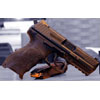
4 police officers shot in Lakewood NJ, US
By
Malsua, in General Discussion
-
Recently Browsing 0 members
No registered users viewing this page.

By
Malsua, in General Discussion
No registered users viewing this page.





By silverado427 · Posted
By maintenanceguy · Posted
